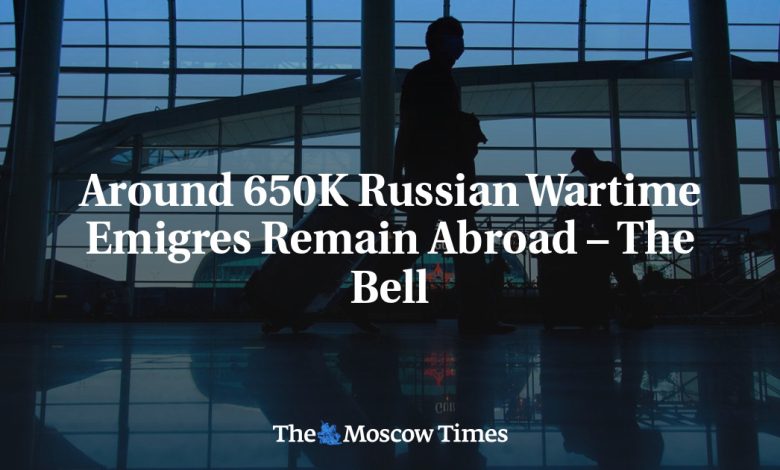Around 650K Russian Wartime Emigres Remain Abroad – The Bell

Around 650,000 Russians have left the country and not returned since Moscow launched the full-scale invasion of Ukraine in 2022, according to a new report by the independent business news outlet The Bell, citing migration data from dozens of countries.
Russia saw two waves of outward migration in 2022 — one initially after the start of the invasion and the second in the fall when the Kremlin announced a “partial” mobilization drive. Many fled out of opposition to the war, fears of economic collapse or a refusal to be sent to the battlefield in Ukraine.
According to The Bell’s estimate — which is based on migration data from nearly 70 countries and public statements by officials — many of those who fled Russia remain abroad, although some have returned due to various difficulties they faced living in a foreign country.
Countries offering visa-free access to Russian citizens have been the most popular destinations among wartime emigres, including Armenia, Kazakhstan and Georgia, where 110,000, 80,000 and 74,000 Russians have settled, respectively. Over 48,000 Russians moved to the United States, making it the fifth most popular destination.
Meanwhile, around 80,000 Russians relocated to Israel. However, The Bell notes that many of these people may have since left for another country, especially since the October 7 Hamas attack and Israel’s subsequent war on Gaza.
Among EU states, Germany reports hosting the most Russian emigres, with 36,000 settling there, followed by Spain, which has received around 16,000 people.
Portugal, which offers a digital nomad visa popular among Russian IT workers, has not published residence figures since 2022. Cyprus, another key EU destination for Russian tech workers, does not keep count of the number of arrivals from Russia.
Other popular emigration destinations that did not provide data include Thailand, Indonesia, Azerbaijan and Greece, The Bell said in its report, meaning that the outlet’s estimate for the number of Russians still living in emigration is an undercount.
President Vladimir Putin initially described this outflow of Russians following the invasion of Ukraine as a “natural and necessary cleansing of society” of “scum and traitors.” But last year, he shifted his tone, describing those who remain abroad as “an additional element connecting Russia” with its foreign partners.


 Bonuses for new players
Bonuses for new players